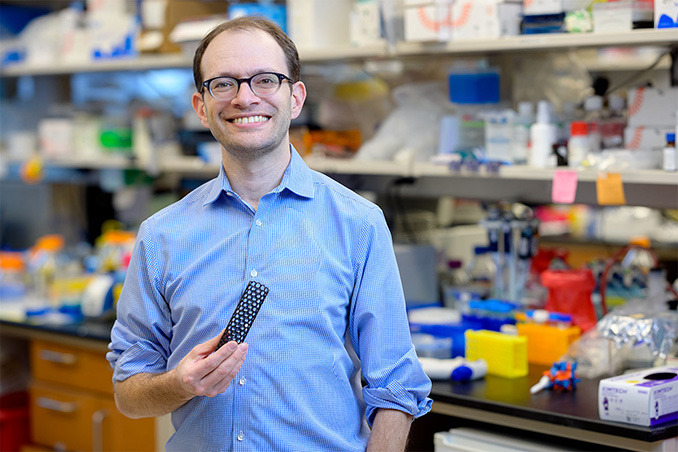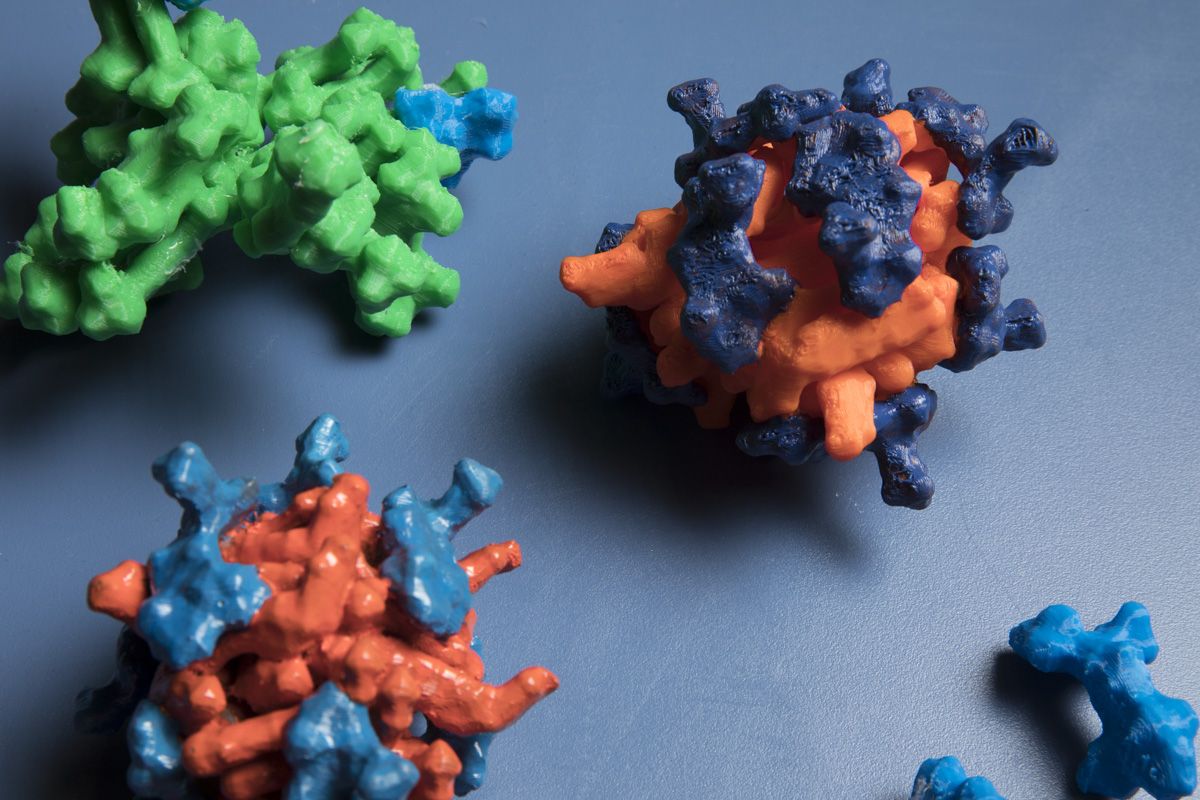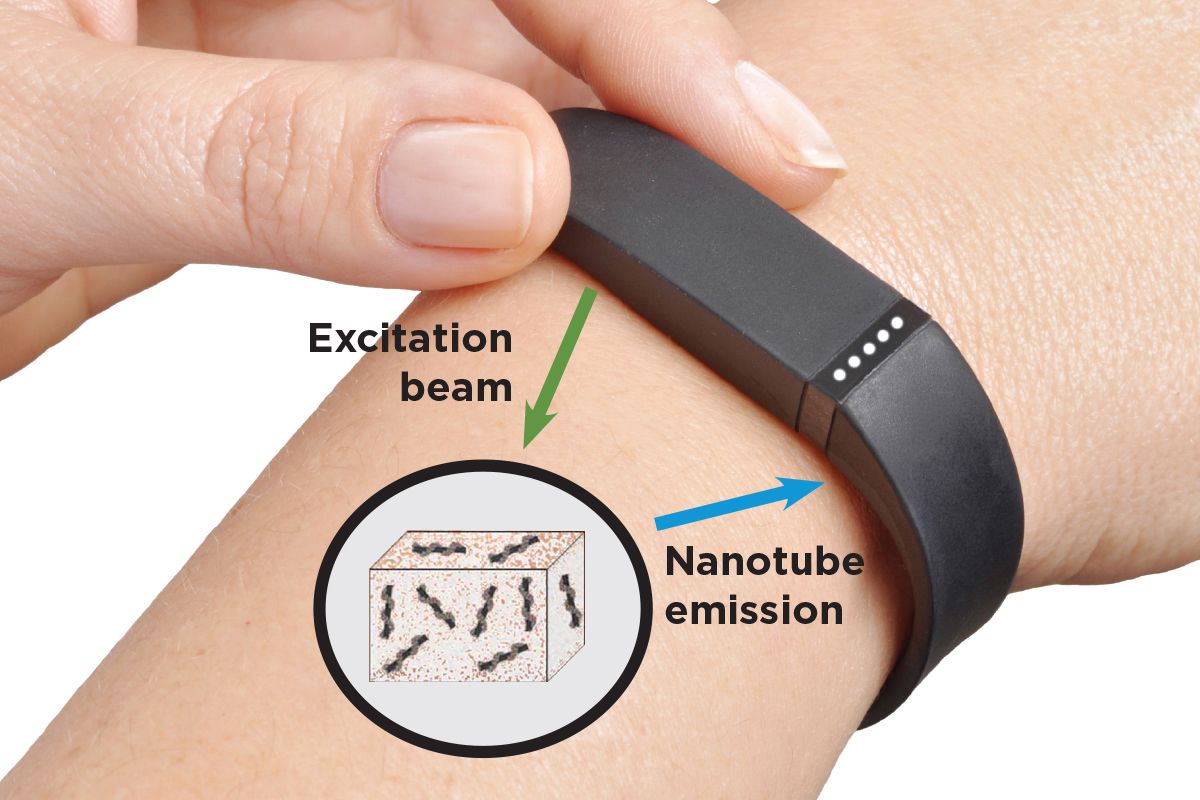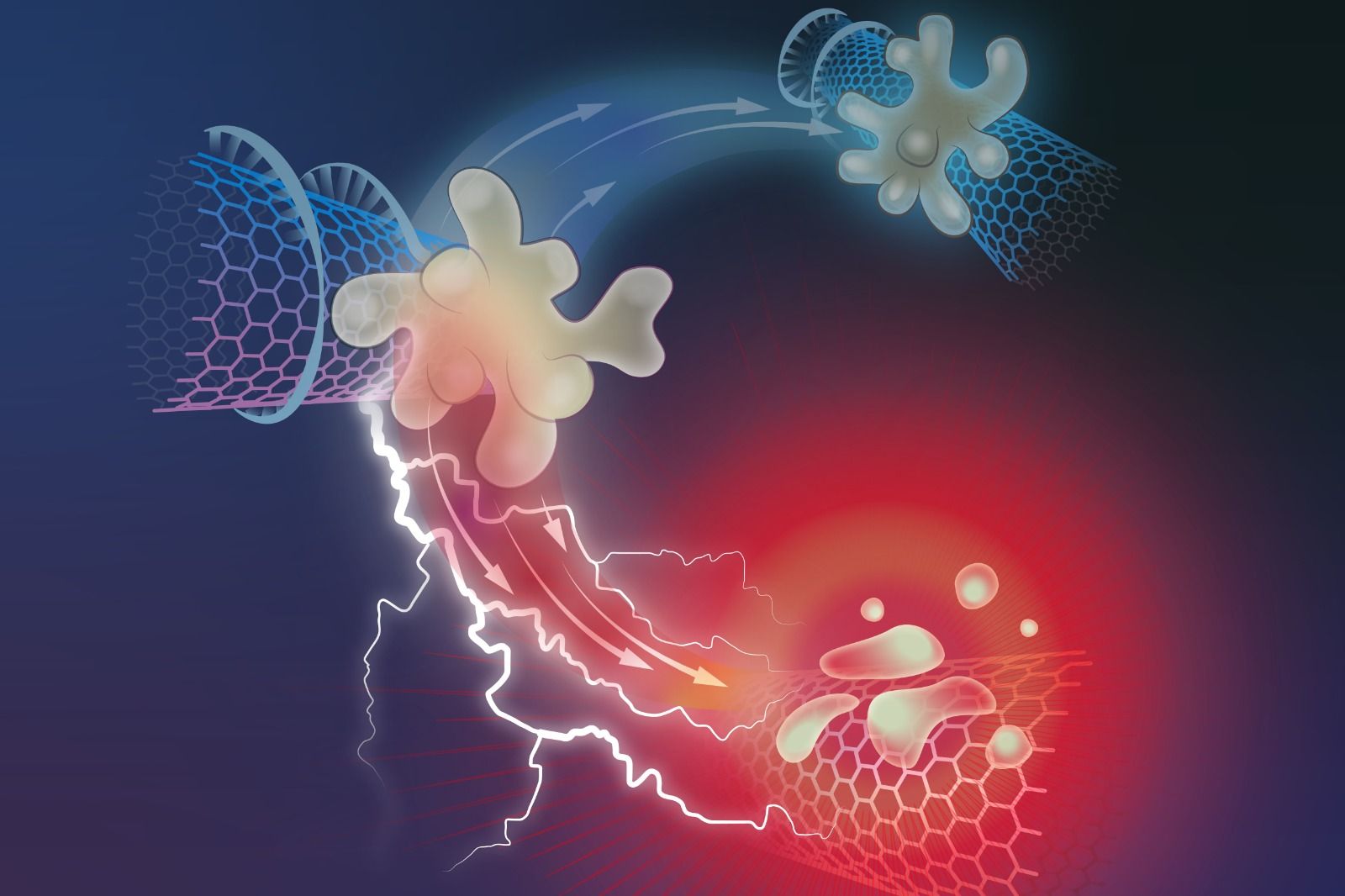
Research

Diagnostic Technologies for Early Cancer Detection: We develop nanosensor technologies to accurately identify cancer at the earliest stages. Early detection improves the chances that cancer treatments will be effective. We are building implantable sensor technologies to facilitate the real-time monitoring, to enable the detection of cancer biomarkers at the earliest possible timepoints. Some of these sensors can even interface with wearable devices.
We are also developing sensor technologies that use artificial intelligence to detect many biomarkers simultaneously, to improve sensitivity and specificity.
These technologies could monitor people with heightened risk for cancers, or in successfully treated patients who have a high risk of recurrence. In people who are undergoing treatment, the sensors could signal immediately whether a biomarker is going up or down and, when needed, alert a doctor to switch to a different course of therapy. We are pursuing the translation of these sensor platforms from the laboratory to the clinic.
Figure 2.

Nanosensors to Accelerate Cancer Research and Drug Discovery: We are designing novel probes and sensors to accelerate scientific discoveries and drug development. New technologies that unlock measurements of a biological process or analyte enable new biology to be found. And drug development often begins with a probe or assay that allows researchers to rapidly screen for drug molecules that produce a therapeutic effect. We are developing sensors that monitor biochemical processes within live cells and tissues. Recent works include optical sensors for the detection of lipids within the lysosomes of live cells and living organisms and a sensor for the detection of a specific enzymatic deactivation mechanism. Using optical nanosensors as research and screening tools enables us to ask unprecedented questions, discover new disease mechanisms, and accelerate biomedical discoveries
Figure 3. 
Current Projects:
- Precision Nanomedicines for Targeted Drug Delivery
- Diagnostic Technologies for Early Cancer Detection
- Nanosensors to Accelerate Cancer Research and Drug Discovery
Bio
Biomedical engineer Daniel Heller is Head of the Cancer Nanotechnology Laboratory at Memorial Sloan Kettering Cancer Center and Weill Cornell Medical College. His laboratory invents disruptive technologies to revolutionize the diagnosis and treatment of cancer and allied diseases. He obtained his bachelor’s degree in history from Rice University in 2000. He received his PhD in chemistry from University of Illinois at Urbana-Champaign in 2010, where he worked on carbon nanotube chemistry with Michael S. Strano. He then completed a Damon Runyon Cancer Research Foundation Postdoctoral Fellowship in the laboratory of Robert Langer at the David H. Koch Institute for Integrative Cancer Research at MIT in 2012.
Distinctions:
- 2024- College of Liberal Arts and Sciences Young Alumni Award, University of Illinois
- 2023-Life Sciences Invention of the Year, UM Ventures
- 2021-American Institute for Medical and Biological Engineering (AIMBE) Fellow
- 2020-Pharmacology Teaching and Mentoring Award, Weill Cornell Graduate School
- 2018-CRS Nanomedicine and Nanoscale Drug Delivery Focus Group Junior Faculty Award
- 2018-American Cancer Society Research Scholar
- 2017-Pershing Square Sohn Prize, Pershing Square Sohn Cancer Research Alliance
- 2015-Kavil Fellow, National Academy of Science
Selected Publications:
D Tylawsky, H Kiguchi, J Vaynshteyn, J Gerwin, J Shah, T. Islam, J Boyer, D Boué, M Snuderl, M Greenblatt, Y Shamay, P Raju, DA Heller*, “P-selectin-targeted nanocarriers induce active crossing of the blood–brain barrier via caveolin-1-dependent transcytosis. Nature Materials. 22,391-399 (2023).
M Kim, C Chen, P Wang, JJ Mulvey, Y Yang, C Wun, M Antman-Passig, H-B Luo, S Cho, K Long-Roche, LV Ramanathan, A Jagota, M Zheng, Y Wang, DA Heller*. “Machine-Learning-Based Detection of an Ovarian Cancer Disease Fingerprint from Serum via Quantum Defect-Modified Carbon Nanotube Arrays.” Nature Biomedical Engineering (2022). https://www.mskcc.org/news/sensor-sniffs-cancer-using-artificial-intelligence
Z Yaari, Y Yang, E Apfelbaum, C Cupo, A Settle, Q Cullen, W Cai, K Long Roche, DA Levine, M Fleisher, L Ramanathan, M Zheng, A Jagota, DA Heller*. ”A Perception-Based Machine-Perception Nanosensor Platform to Detect Cancer Biomarkers.” Science Advances 7 (2021) eabj0852. MSK News: https://www.mskcc.org/news/detect-ovarian-cancer-early-researchers-look-nanotechnology
J Budhathoki-Uprety, J Shah, JA Korsen, AE Wayne, TV Galassi, JR Cohen, JD Harvey, PV Jena, LV Ramanathan, EA Jaimes, DA Heller*. “Synthetic Molecular Recognition Nanosensor Paint for Microalbuminuria.” Nature Communications 10 (2019) 3605.
